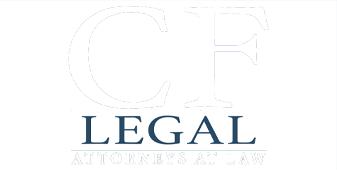Serving as an executor or personal representative of an estate is a significant responsibility that comes with various duties and obligations. At CFLegal, we recognize the importance of understanding these roles for individuals in Grand Blanc, Flint, and throughout Michigan. Let's explore the key responsibilities of an executor:
Filing the Will with the Probate Court
The executor's first responsibility is to file the deceased person's will with the probate court. This officially initiates the probate process and sets the legal framework for administering the estate.
Notifying Beneficiaries and Creditors
The executor is responsible for notifying beneficiaries named in the will and any known creditors of the deceased person's passing. This ensures transparency and allows creditors to make claims against the estate within the specified time frame.
Managing Estate Assets
The executor must take inventory of the deceased person's assets, including real estate, bank accounts, investments, and personal belongings. They are responsible for safeguarding these assets during the probate process and may need to obtain appraisals or valuations as necessary.
Paying Debts and Taxes
The executor is tasked with identifying and paying any outstanding debts owed by the deceased person, including funeral expenses, taxes, and creditor claims. This may involve selling assets or using estate funds to satisfy these obligations.
Distributing Assets to Beneficiaries
Once debts and taxes are settled, the executor oversees the distribution of the remaining assets to the beneficiaries according to the terms of the will or Michigan intestacy laws if there is no will. This includes transferring property titles and coordinating the transfer of financial assets.
Filing Legal Documents and Reports
Throughout the probate process, the executor must file various legal documents and reports with the probate court, including an inventory of assets, accounting of estate expenses, and a final distribution report. Compliance with court requirements is essential to ensure the probate process proceeds smoothly.
Resolving Disputes and Challenges
In some cases, disputes may arise among beneficiaries or challenges to the validity of the will may be raised. The executor is responsible for addressing these issues and may need to seek legal assistance to resolve conflicts or defend the estate's interests in court.
Acting in the Best Interest of the Estate
Above all, the executor must act in the best interest of the estate and its beneficiaries, adhering to their fiduciary duty. This includes making decisions that are prudent, transparent, and in accordance with Michigan probate laws.
Get in Touch with CFLegal
Serving as an executor in Michigan probate requires careful attention to detail, organization, and a thorough understanding of legal requirements. If you're appointed as an executor or personal representative and have questions about your responsibilities, don't hesitate to seek guidance from experienced probate attorneys like CFLegal. We're here to provide the support and expertise you need to fulfill your duties effectively and navigate the probate process with confidence.


.2309201137409.png)